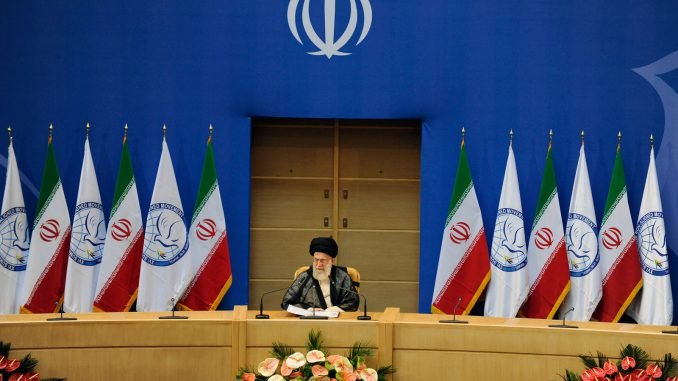
US President Donald Trump‘s announcement that the USA is withdrawing from the 2015 nuclear agreement signed with Iran has raised an uproar and much discussion in the world. According to experts, this move by the USA is a major threat to transatlantic cooperation and European states will have to increasingly turn to Russia and China. Furthermore, this news from the white house may also influence Lithuania to a significant degree, lrt.lt writes.
What this step by the USA means was the discussion topic of the Dėmesio Centre talk show featuring Vilnius University Institute of International Relations and Political Science political scientist Margarita Šešelgytė and Vilnius Institute of Policy Analysis chief analyst Marius Laurinavičius.
M. Laurinavičius believes that the reason Donald Trump chose to take this step in withdrawing from the agreement was simply a continuation of declared policy and electoral pledges, having criticised the Iran deal heavily during his campaign. The expert points out that D. Trump has highlighted issues with the agreement: not only is it of limited duration (10 years), it also did not include the ballistic missile programme, with these two factors allowing Iran to remain a destabilising factor in the region and profit, grow stronger.
In terms of the agreement’s future in general, M. Šešelgytė reminds that three European leaders – Emmanuel Macron, Angela Merkel and Theresa May have expressed regret over the US’ decision to withdraw and an intent to remain. At the same time, Iran remains a party to it as well, but negotiations will now only be with the European states, Russia and China and, as M. Šešelgytė notes, there is little time and the negotiations will have to be both quick and effective.
Both experts find that the United States’ unilateral withdrawal from the agreement could lead to trade wars because upon the country withdrawing and potentially establishing sanctions against Iran, the sanctions would also impact, for example, European companies continuing to operate under the agreement’s framework. A potential example of this is one of the largest European carmakers Renault, which has signed long-term agreements on investment in Iran and the company risking sanctions because of its links to Iran. Overall, this leaves a question of how Russia and China will use the potential disputes between the US and its European partners.
In this context, M. Laurinavičius observes a massive risk because looking broadly the issues span more than just sanctions and trade wars. The agreement was reached with great difficulty and its signatories include three major European US allies – the UK, Germany and France. According to the analyst, this is a major threat because it could lead to a weakening of transatlantic cooperation, which is particularly worrisome for Lithuania.
M. Šešelgytė highlights that there may be a number of core factors that have led to such a move by US President Trump. Firstly, it can be seen as a continuation of policy and electoral pledges, as noted earlier by M. Laurinavičius. Secondly, she points out, D. Trump has consistently sought to break down constructs from the Barack Obama era, this including withdrawal from the Paris Accords and a number of other frameworks. The third factor she highlights is that this is an effort to display prior to negotiations with North Korea that the president is firm and will not be satisfied with just any agreement.
Sceptics note, however, that this move may instead convince North Korea that agreements with the US cannot be trusted. In this regard, M. Šešelgytė highlights that this is an important factor in breaking down the international arms control regime, which could lead to increased armament and reduced trust on the international arena, which could lead to a domino effect, which is truly dangerous.
M. Laurinavičius is unconvinced by such concerns and highlights that despite being critical of the agreement, D. Trump has offered to renegotiate the agreement, something Iran has refused to do. He continues to note that this may be a tactic of escalating until the opposing party backs down so that North Korea would realise it has no other choice than negotiations and at the same time perhaps in the hopes of a future renegotiation of conditions with Iran.
“Indeed today many write that likely a blow will not be struck against transatlantic cooperation, but it has been made clear that security interests will not always match those of the US and European states must think about a strategy of defending their interests. As well as considering, what strategy to apply regarding that region – a European strategy with clear interests and actions, what Europe should do there because it is clear that in this matter interests have separated,” M. Šešelgytė noted in terms of the European response to the US withdrawal.
In this respect, both experts stress that transatlantic unity is bound to suffer, especially with the three European leaders having pointed out in their statements that there will now be need for deeper cooperation with Russia and this could lead to further challenges to countries such as Lithuania or Ukraine.
“There are no problems in the world that do not concern us. These are the games of the major powers of the world, these are problems linked to the balance of power in the world. Since we are members of the world’s most powerful defensive alliance, this simply cannot fail to touch us. One way or another it will affect us,” M. Laurinavičius concluded.

Be the first to comment